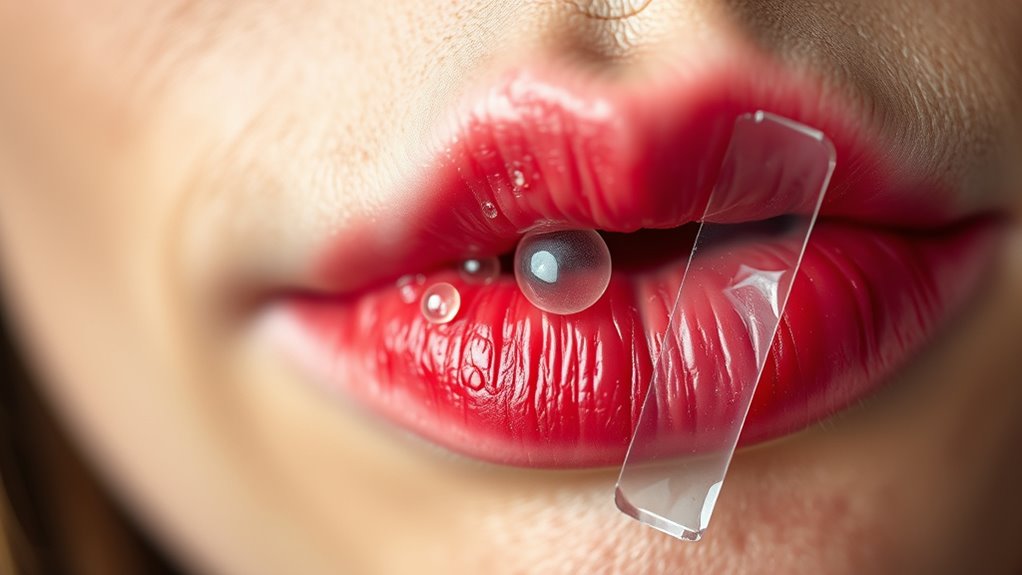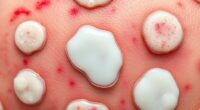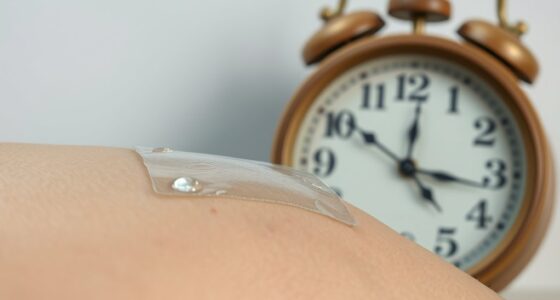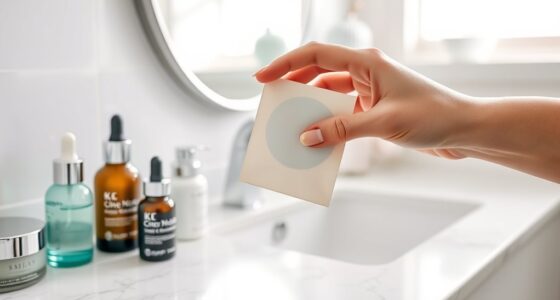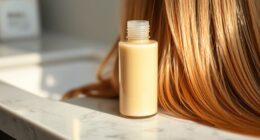Using pimple patches on cold sores is a total flop. While they absorb oil and create a barrier, they trap moisture, worsening the cold sore and increasing the risk of spreading the virus. Unlike acne, cold sores need antiviral treatments for healing. The patches don’t provide those benefits, and the adhesive can irritate sensitive skin. If you’re curious about the best ways to manage cold sores and the right treatments, you’ll want to explore further.
Key Takeaways
- Pimple patches absorb oil and pus, but they are not effective on cold sores caused by the herpes simplex virus.
- Using pimple patches on cold sores can trap moisture, promoting virus replication and delaying healing.
- Cold sores are contagious, and pimple patches can increase the risk of spreading the virus if not handled properly.
- Pimple patches lack antiviral properties, making them inappropriate for treating cold sores.
- Recommended treatments for cold sores include antiviral medications and soothing topical options, not pimple patches.
Understanding Pimple Patches and Their Functionality
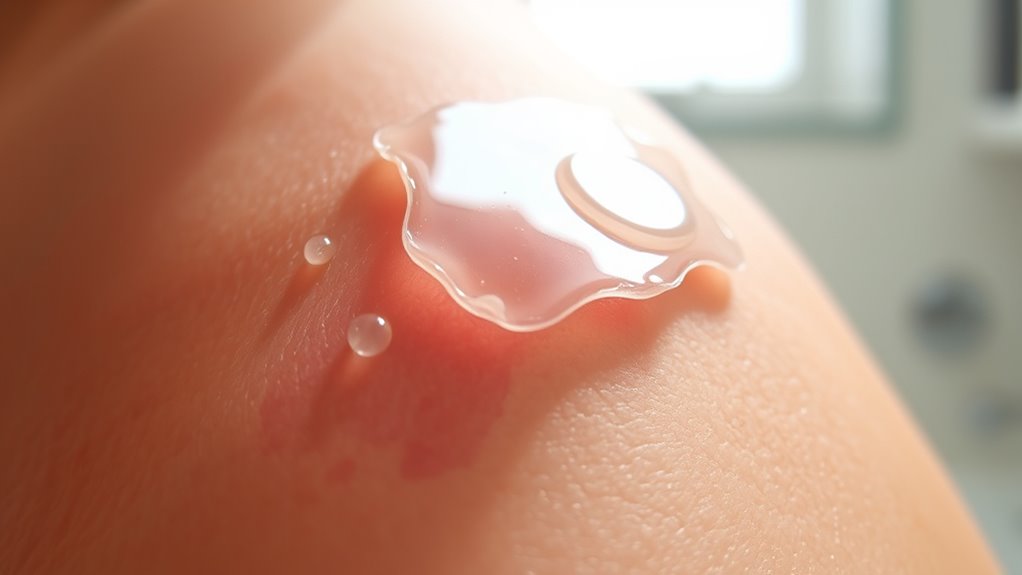
Pimple patches are a game-changer for tackling acne. Made from hydrocolloid, these medical-grade patches create a protective barrier on your skin, absorbing excess oil and pus from pimples. By doing so, they reduce inflammation and prevent bacterial infection, keeping external contaminants at bay. They utilize hydrocolloid technology to flatten blemishes and absorb impurities, which is essential for effective treatment. Suitable for all skin types, including sensitive skin, they’re gentle and breathable. You can wear them overnight for ideal results or discreetly during the day. When applied to clean, dry skin, they maintain a moist healing environment, which promotes natural healing and minimizes scarring. Some patches even contain added acne-fighting ingredients like salicylic acid. Just replace them once they turn white, indicating they’ve done their job.
Cold Sores vs. Pimples: Key Differences
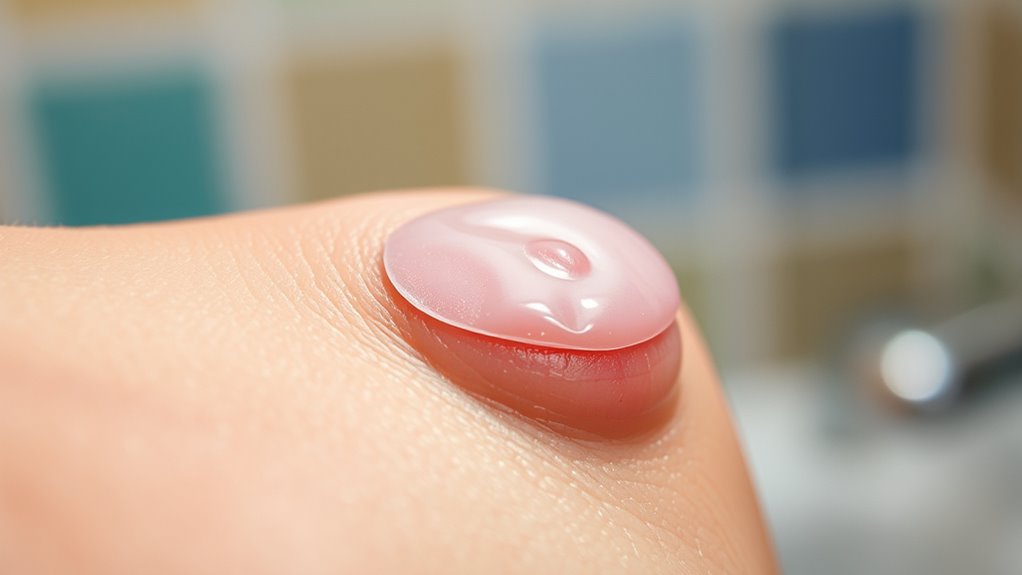
Understanding the key differences between cold sores and pimples is essential for effective treatment and management.
Cold sores are caused by the herpes simplex virus (HSV-1) and are contagious, often appearing around your lips and mouth. You might notice a tingling sensation before they emerge, forming clusters of painful blisters. Additionally, cold sores can remain dormant and may trigger outbreaks due to various factors.
In contrast, pimples are caused by bacterial overgrowth in clogged hair follicles and can occur anywhere on your body. They’re typically red bumps that may become uncomfortable but aren’t usually painful unless they’re large.
While cold sores can last 2–3 weeks, pimples can resolve in just a few days. Recognizing these distinctions helps you choose the right treatment and approach for each condition.
Risks of Using Pimple Patches on Cold Sores
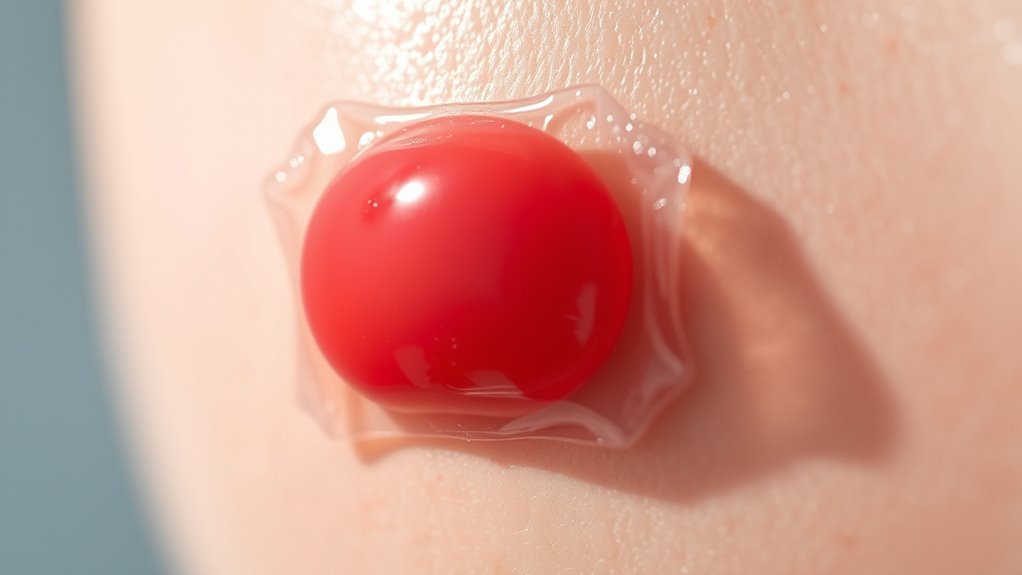
While you might think pimple patches could help manage cold sores, they actually pose several risks that can worsen the situation.
Trapping moisture over a cold sore can create an environment for the herpes simplex virus to replicate, delaying healing and increasing the risk of spreading the virus. Pimple patches lack the necessary antiviral properties to address the root cause of cold sores, rendering them ineffective.
Additionally, the adhesive can cause irritation and discomfort, exacerbating the pain you already experience. Improper handling of an irritated patch may lead to further viral transmission.
Recommended Treatments for Cold Sores
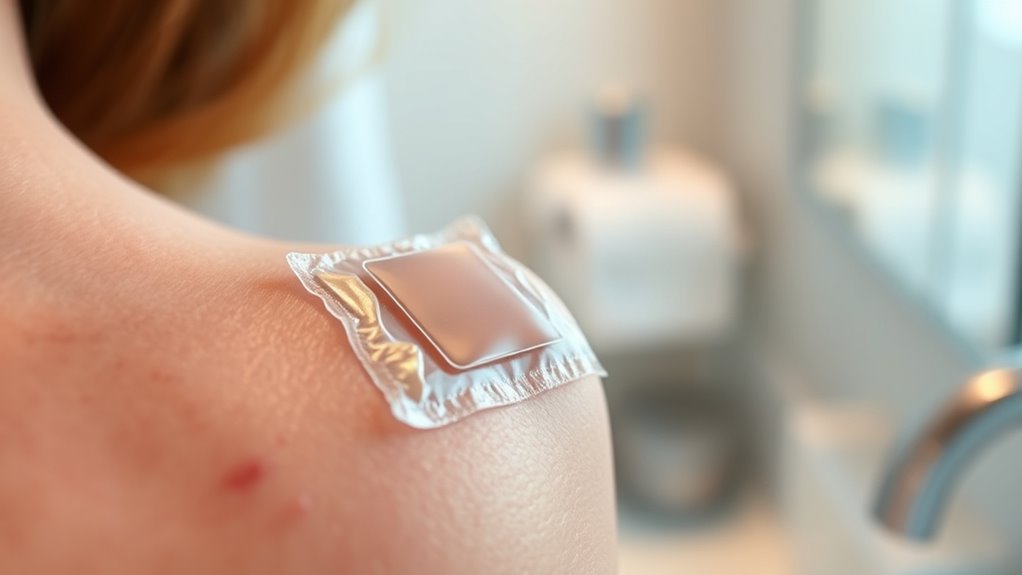
If you’re dealing with cold sores, knowing the right treatments can make a significant difference in your recovery. Pharmaceuticals like Acyclovir and Valacyclovir can effectively reduce symptoms and healing time. For topical options, consider Penciclovir or Docosanol, which are both useful in managing outbreaks. Alternative treatments such as Aloe Vera gel or Lemon Balm may also help soothe your skin. Additionally, using over-the-counter creams can assist in keeping the skin soft during the healing process. Home remedies like cold compresses and honey can provide additional relief. Don’t forget to maintain good hygiene and avoid triggers to prevent future outbreaks. Cold sore patches can protect blisters and speed up healing. Explore these options to find what works best for you and get back to feeling your best quickly.
Best Practices for Managing Cold Sores
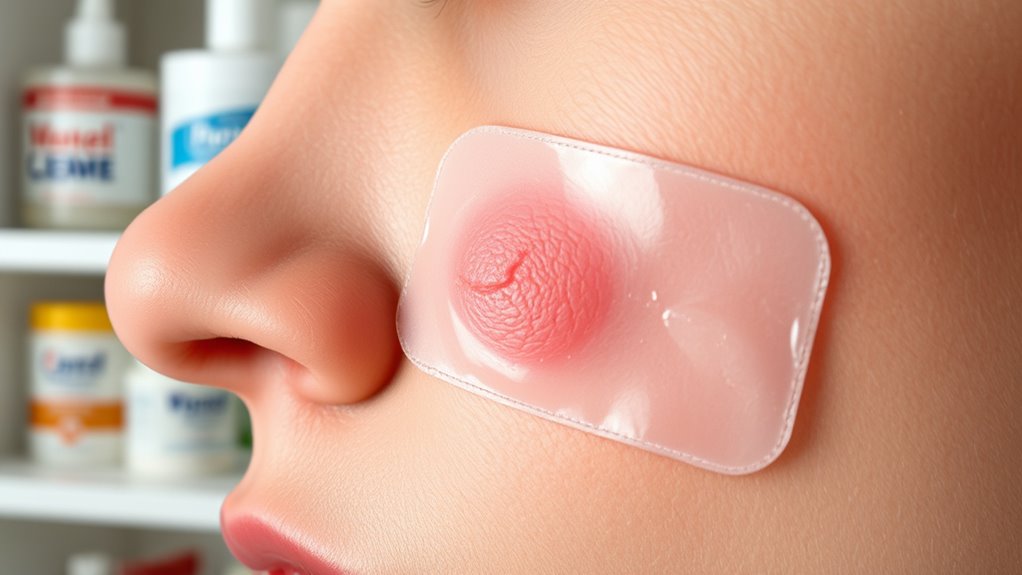
Managing cold sores effectively goes beyond just using treatments; it involves a combination of practices that can help minimize outbreaks and promote healing.
Start by maintaining good hygiene—wash your hands regularly and avoid touching the sore. Protect yourself from triggers like stress and sun exposure by using SPF lip balm and practicing stress management techniques, such as meditation or exercise. Additionally, HSV lies dormant in the body and may reactivate, so it’s important to be mindful of factors that could lead to an outbreak. Eating a diet rich in omega-3 fatty acids can also support your immune system and overall skin health, while incorporating fiber-rich foods can further enhance your approach to managing cold sores. Incorporating natural remedies can further enhance your approach to managing cold sores.
Maintain good hygiene and protect against triggers like stress and sun exposure to effectively manage cold sores.
Avoid sharing personal items like utensils and lip balms to reduce transmission risk. If you experience frequent outbreaks, consult a healthcare provider for appropriate medications.
Finally, keep your skin healthy with a balanced diet, adequate sleep, and moisturizing to promote healing.
Frequently Asked Questions
Can Pimple Patches Prevent Cold Sore Outbreaks?
Pimple patches can’t prevent cold sore outbreaks.
They’re designed for acne, not viral infections like cold sores. If you try using them, you might trap moisture and worsen the situation instead of helping.
To effectively manage cold sores, consider antiviral medications or specific cold sore patches.
You should also focus on lifestyle changes and hygiene practices to reduce the frequency of outbreaks.
Always consult a healthcare professional for the best advice tailored to your needs.
How Long Should Pimple Patches Be Left On?
Imagine your pimple disappearing faster than a magician’s rabbit!
You should leave pimple patches on for at least 6 hours for best results, but they can work wonders overnight, too.
If you’re dealing with stubborn blemishes, you might even keep them on for up to 24 hours.
Just watch for when the patch turns opaque or white; that’s your cue to remove it and reveal clearer skin!
Are There Any Side Effects From Using Pimple Patches?
Yes, there can be side effects from using pimple patches.
You might experience redness, irritation, or even allergic reactions due to the ingredients or adhesives. If you have sensitive skin, you should be particularly cautious, as some patches can cause irritation.
It’s important not to use them on broken skin, and a patch test is a good idea to see how your skin reacts before applying them widely.
Can I Use Makeup Over a Pimple Patch?
Imagine stepping out with confidence, knowing you’ve covered blemishes seamlessly.
You can definitely use makeup over a pimple patch! Start with a clean base, apply the patch, and then gently layer on foundation and concealer.
Keep it light to avoid displacing the patch. A matte finish helps keep everything looking natural.
Just remember, less is more; too much makeup can make the patch more visible.
You’ll be ready to shine!
Are There Specific Pimple Patches for Sensitive Skin?
Yes, there are specific pimple patches designed for sensitive skin.
Brands like Neutrogena and Cetaphil offer gentle options that use soothing ingredients like salicylic acid and centella asiatica to minimize irritation.
Mighty Patch is another great choice, known for its non-irritating hydrocolloid material.
Just make sure your skin is clean and dry before applying, and you can wear these patches for effective acne relief without worrying about discomfort.
Conclusion
To sum up, while pimple patches might seem like a quick fix for cold sores, they’re not designed for this purpose. The difference in skin conditions means they may not provide the relief you’re hoping for. Instead, stick to proven treatments like antiviral creams and consult a healthcare professional for the best results. Remember, treating cold sores effectively is key to managing outbreaks and preventing further irritation. Don’t gamble on a trendy solution that could flop!
